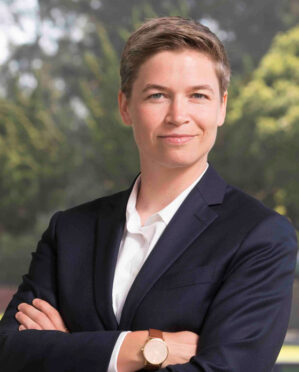Data Analytics for Economic Efficiency in Energy Policy
Like many researchers, Susanna Berkouwer, Assistant Professor of Business Economics and Public Policy at The Wharton School, does not mince words about the planet’s future. “Climate change is one of the biggest challenges that humanity has ever faced,” they say. “And for us to solve it will require the cooperation between governments, individuals, and businesses.”
It’s this cooperation that Berkouwer is researching as part of their work in Data Analytics for Economic Efficiency in Energy Policy, one of the dozens of research initiatives for which Analytics at Wharton provides funding. “As an economist, I’m interested in trying to understand what are the best policies that governments could implement to ensure that businesses are adapting and expecting and responding to the challenges that will be posed from climate change.”
For Berkouwer, it’s an opportunity to combine their interests in economics with a passion for humanitarian aid, an undertaking that shows just how much overlap can exist between commerce and “for good” endeavors.
“One of the strongest causes of poverty, certainly in the next several decades, is going to be climate change.”

“When I conduct research on a day-to-day basis, I see that as both challenging from an academic perspective but also from a personal perspective. I come at this from the perspective of international humanitarian development. One of the strongest causes of poverty, certainly in the next several decades, is going to be climate change. Droughts will affect agricultural supply; it will affect our health. It will affect those who don’t have access to adequate health systems the most. And so, my interest is especially in understanding how those societies can best adapt and build resilience to their increased vulnerability to climate change.”
Though the effects and scale of climate change can feel worrisome, there are reasons for optimism in our efforts to address the future. The findings of Berkouwer’s research combat a common misconception regarding climate change – that to meaningfully fight it comes at the cost of economic prosperity.
“In one of my recent research projects, I worked with a thousand households in Nairobi, in Kenya, and we found that adopting energy efficient technologies can allow these households to save significant sums of money by reducing their [monetary] fuel savings while also reducing CO2 emissions from the energy that they do use,” they said. “We know that climate change can damage the economy, can hurt people’s homes, can hurt investment because of the increased risk.”
“Trying to reduce the impacts from climate change can generate economic growth and economic wellbeing in the long-term.”
“Trying to reduce the impacts from climate change can generate economic growth and economic wellbeing in the long-term. In addition to that, reducing our fossil fuel emissions and instead investing in green energy sources like solar or wind or hydro or geothermal, or developing new technologies altogether, generates massive opportunities for economic growth.”
With funding from Analytics at Wharton, Berkouwer was able to hire a number of pre-doctoral researchers to help their efforts. These researchers – having studied everything from economics to mathematics and computer science – work with Berkouwer to analyze and clean data sets and perform regressions and other forms of data analysis to improve the quality and rigor of their research.
“The new Environmental, Social and Governance Initiative is bringing together faculty from lots of different disciplines…to help bring in people and educate the public about [climate change].”
Although the need to address climate change may seem daunting, it’s a great time to join the battle and become part of the conversation. “Wharton is a really exciting place to be to study climate change,” says Berkouwer. “The new Environmental, Social and Governance Initiative is bringing together faculty from lots of different disciplines, whether it’s finance, accounting, or economics, to study these topics, and we’re putting on lots of exciting panels, webinars, and interviews to help bring in people and educate the public about [climate change].”
Berkouwer will be speaking at the Wharton Climate Prof event on October 12, during which faculty and other researchers will pitch their work in 5 minutes or less. Open to Penn and Wharton students, this event will take place during Penn’s Climate Week to showcase climate-related research at Wharton. Register here.


